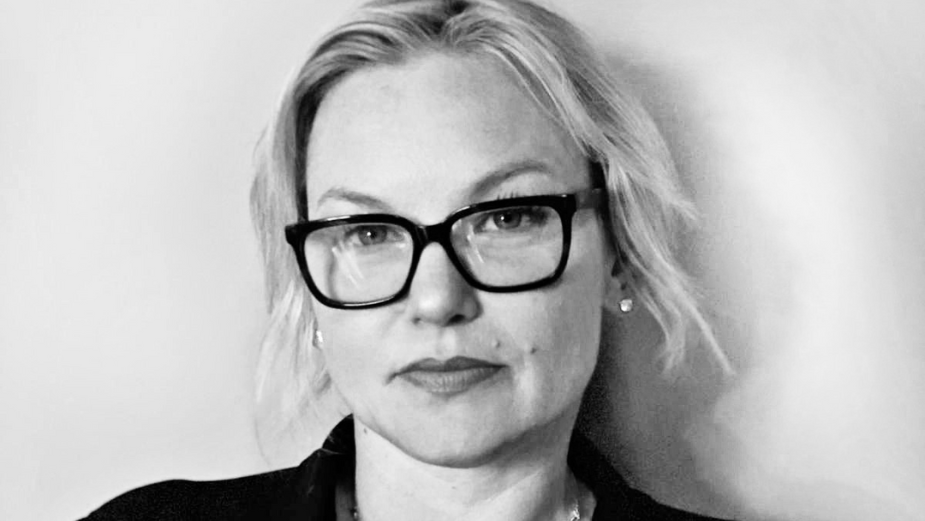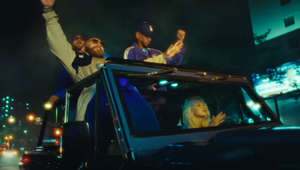
Bossing It: Kirsten Arongino on the Nature of Leadership

Kirsten Arongino is Ammolite’s managing director. A veteran agency producer with 25 years of experience, she has worked with top-tier agencies including Deutsch and Ogilvy & Mather and she was VP executive producer at Publicis. She has produced projects for brands including Honda, Gap, Campari, Tiffany & Co., and Walmart, among numerous others.
LBB> What was your first experience of leadership?
Kirsten> My first experience with leadership was while I was working at Deutsch for a man named Jim Frame. I was in my early twenties and I was kind of phoning it in. I remember he looked at me one day and he said, “Here's the thing. You're either gonna do this or you're not gonna do this. Make up your mind. If you do it, you're gonna be amazing. But if you don't do it, then we should just end it now. But you have to be the one to decide.” Here I was, with my head on my desk, hungover, and Jim says that to me.
LBB> How did you figure out what kind of leader you wanted to be – or what kind of leader you didn’t want to be?
Kirsten> I worked with some executive producers who made me realise right away that I did not want to be like them. They were unsupportive and shouty. I knew I never wanted to be a dictator, and that I’d rather lead with compassion and not make people feel small just to make myself feel big. I was a young up-and-coming producer and I remember feeling so terrible about myself because of the way they treated me. I never wanted to make anyone feel like that. Twenty-five years later and I have never actually forgotten about it. It didn't push me to work harder, it simply motivated me to lead in a different way.
LBB> What experience or moment gave you your biggest lesson in leadership?
Kirsten> We were in the middle of a major project. It was falling apart. I looked around and could see that everyone else was falling apart and if I fell apart too, it really was gonna fall apart.
Did I want to continue holding it together? No not really. I wanted to fall apart too, but I also realised that I was the thing that was holding it together. That was a lightbulb moment. And in the end, we pulled it off.
LBB> Did you know you always wanted to take on a leadership role? If so how did you work towards it and if not, when did you start realising that you had it in you?
Kirsten> I didn't always know if I wanted to be in a leadership role, to be honest. As I really started to work with people I realised that I loved mentoring. I realised I enjoyed that process. I enjoyed watching people learn and encouraging them to grow. I pride myself on taking the time to explain things and really teach people. At the end of the day, it’s a very small community. In five years, somebody who started under you could be your client. You never know where you will meet people again. I always enjoyed watching people do well. Their success was always my success. And I think that that's not the case for a lot of leaders.
LBB> When it comes to 'leadership' as a skill, how much do you think is a natural part of personality, how much can be taught and learned?
Kirsten> I think that it’s both, and it’s always ongoing. Yes, you have to have the right personality, but you also always need to be learning and growing. That includes reading your team and considering what each person needs to do their best work. Not everybody's good at everything. So, where does each person on the team belong, in order to thrive? Because I do believe that one person doesn't make it all happen. It's a team effort, and every team is different. That’s the nature of leadership, understanding that it’s not one size fits all.
LBB> What are the aspects of leadership that you find most personally challenging? And how do you work through them?
Kirsten> The pace of our business isn’t very conducive to mentorship. Ideally, when you are building a team, you have time to model the process for them, and break things down so they understand the thinking behind certain decision-making or flows. But when the pace is fast––and it is always fast these days––it's very easy to have the impulse to want to just do it yourself.
But that's not a way to grow your team. You have to recognise and come to terms with the fact that mentorship is necessary in order to grow your team and support the ambitions and scale of whatever you’re doing. That takes time and patience, but I promise you — you get out what you put into it.
LBB> Have you ever felt like you've failed whilst in charge? How did you address the issue and what did you learn from it?
Kirsten> Hasn’t everyone? That’s how we learn. As a leader, I absolutely have failed. I hired someone who I thought was really competent and they clearly weren’t. I've made mistakes when it comes to staffing choices, resulting in some severe fallout. That said, I acknowledged it, I fixed it, and I moved on. That's what a leader does. You can’t wallow in it. I acknowledged the mistake and I promised myself I’d never make that same mistake again.
As for the secret to selecting good hires, what I have learned is that it’s about recognising what you want and what you actually need. They might be two different things. You want someone that from a personality standpoint is appealing - somebody you can laugh with. But at the end of the day, you need someone really competent and strong. It's really about digging in and asking the hard questions. When I interview, it's the most honest interview someone will ever have. I lay it all on the table. I tell it like it is and I don’t sugar-coat anything. It’s rough hours and hard work. I give them the true reality.
LBB> In terms of leadership and openness, what’s your approach there? Do you think it’s important to be transparent as possible in the service of being authentic? Or is there a value in being careful and considered?
Kirsten> I think transparency is certainly important. As I said about the interview process, you need to make your expectations clear otherwise you’re not going to have a good fit. You have to communicate the reality and give people the information they need to be successful in their role.
That being said, sometimes there's some behind the scenes drama or chaos that can infect the whole job if you don't create some firewalls here and there. To me, that’s not a lack of transparency. It’s protecting the team and project.
LBB> As you developed your leadership skills did you have a mentor, if so who were/are they and what have you learned? And on the flip side, do you mentor any aspiring leaders and how do you approach that relationship?
Kirsten> Oh, I had the best. I worked at Publicis for years and the Chief Production Officer was a woman named Lisa Bifulco. I met her when I came in as a freelance producer. Her entire staff of 10 producers had been with her for 10 years, which in this business is insane. She was the smartest. So thoughtful. I took a lot of cues from her. She had great business sense. She absolutely demanded nothing but the best, and you wanted to give it to her. You never wanted to fail with her. She was tough as nails; however, she was also the warmest, kindest person you ever met. She was the one person in my life that I have to say, could balance it all. She really commanded respect.
LBB> It's been a really challenging few years - and that's an understatement. How do you cope with the responsibility of leading a team through such difficult waters?
Kirsten> I take that responsibility very seriously which is really what kept me moving at warp speed through the pandemic. Ultimately, as the managing director, it’s my responsibility to take care of everyone and their families, To be honest, I didn't stop. While everyone was sitting around watching Netflix, I rarely turned on the television during the pandemic. We just grinded, we kept going, we didn't stop. We opened a post-production department and visual effects department. We did whatever we could to get through it, and we actually did pretty well.
Emil and I made that decision together, as partners, at the beginning of it - we weren't going to stop. And the truth is when you have a staff, it is a responsibility. Every person, especially during a pandemic when there's so much uncertainty and people are looking for ways to pay their rent or buy their groceries or deal with life and death situations... We took it seriously. Emil kept me going. He wouldn’t let me stop.
LBB> These past few years have seen the industry confronted with its lack of action/progress on diversity and inclusion. As a leader how have you dealt with this?
Kirsten> To be very honest, our company has always prioritised new voices, young voices, diverse voices and stories. We’ve always gone after stuff that feels different, that looks different, and that sounds different in order to convey a truly personal point of view. When you're truly prioritising those things, your company and the artists that you're working with will be diverse. That approach was something that was baked into how Emil and I saw this company from the start, and I think that’s a big reason why our work is so strong and resonates in culture the way that it does.
LBB> What are the most useful resources you’ve found to help you along your leadership journey?
Kirsten> Talking to other leaders and learning how they operate. Gathering knowledge and incorporating the ideas that resonate and discarding the ones that don’t. That’s very much an ongoing process and it’s part of my job that I love.










